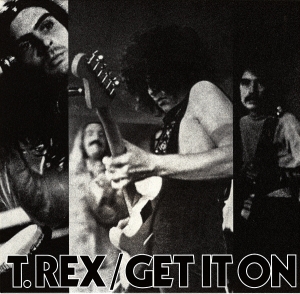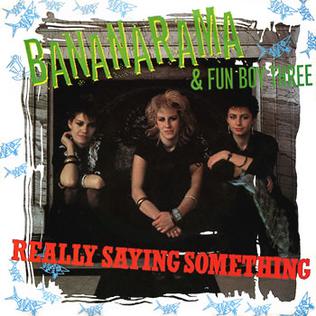Salt-n-Pepa’s Salt was born Cheryl Denton on this date in 1966. A few of the group’s hits are included on today’s playlist.
Follow Tunes du Jour on Facebook
Follow Tunes du Jour on Twitter
Follow me on Instagram
Despite “U.N.I.T.Y.” being her only US pop top 40 single, in 2006 Queen Latifah became the first hip hop artist to be awarded a star on the Hollywood Walk of Fame.
Her Majesty Queen Latifah was born Dana Owens on this date in 1970. A few of her tracks are included on today’s playlist.
Follow Tunes du Jour on Facebook
Follow Tunes du Jour on Twitter
Follow me on Instagram
Public Enemy stands as one of the most influential and provocative groups in the history of hip-hop. With their explosive beats, politically charged lyrics, and unapologetic activism, they have left an indelible mark on both the music industry and the broader cultural landscape.
From the iconic “Fight the Power” to the anthemic “Bring the Noise,” Public Enemy’s music has served as a rallying cry for social justice and empowerment. Their fearless exploration of themes like racism, inequality, and police brutality challenged the status quo and gave voice to marginalized communities. Tracks like “Welcome to the Terrordome” and “911 Is a Joke” confront uncomfortable truths with unflinching honesty, sparking necessary conversations about the realities of life for many people of color in America.
However, Public Enemy’s journey has not been without its controversies. Accusations of anti-Semitism, homophobia, and misogyny have dogged the group throughout their career. Songs like “Sophisticated Bitch” and “Meet the G That Killed Me” have drawn criticism for their language and imagery, raising valid concerns about the perpetuation of harmful stereotypes and attitudes.
Despite these criticisms, Public Enemy’s impact extends beyond their music. They’ve used their platform to promote social change and empower marginalized communities. Through initiatives like the “Bum Rush the Vote” campaign and partnerships with organizations fighting for civil rights, they have demonstrated a commitment to activism both on and off the stage.
Public Enemy’s legacy is complex, encompassing both their groundbreaking contributions to music and the controversies that have surrounded them. As we reflect on their body of work, it is essential to engage with the full spectrum of their impact, acknowledging their successes while also holding them accountable for their missteps. In doing so, we can appreciate the depth and significance of their cultural influence while striving for a more inclusive and equitable future.
Follow Tunes du Jour on Facebook
Follow Tunes du Jour on Twitter
Follow me on Instagram
Today’s playlist celebrates the September 9 birthdays of Otis Redding, Eurythmics’ Dave Stewart, Iron Butterfly’s Doug Ingle, Drugstore’s Isabel Monteiro, Les Rythmes Digitales’ Stuart Price (a/k/a Jacques LuCont), Dee Dee Sharp, The Caravelles’ Andrea Simpson, and Brittney Spencer; and the September 10 birthdays of Aerosmith’s Joe Perry, Big Daddy Kane, Camper Van Beethoven/Cracker’s Dave Lowery, Bananarama/Shakespear’s Sister’s Siobhan Fahey, Three Dog Night’s Danny Hutton, T’Pau’s Carol Decker, José Feliciano, Ashley Monroe, and Avenue Q songwriter Jeff Marx.
Follow Tunes du Jour on Facebook
Follow Tunes du Jour on Twitter
Follow me on Instagram
In some ways Public Enemy’s Chuck D is the Eric Clapton of hip hop. Both are very talented guys who espoused bigoted points of view and spread hatred toward those of populations different than theirs. Eric Clapton said “Get the coons out. Keep Britain white.” Chuck D said about gay people “I think they’re a little confused” and supports the anti-Semitism espoused by his fellow Public Enemy member Professor Griff and Louis Farrakhan. (For more on the Clapton’s racism, check out http://www.tunesdujour.com/eric-clapton-england-is-for-white-people/. For more on Chuck D’s homophobia and anti-Semitism, check out http://www.tunesdujour.com/public-enemy-dont-tell-me-that-you-understand-until-you-hear-the-men/.) In his autobiography Clapton wrote that the lesson he learned after all the pushback he received on his comments was “Since then I have learned to keep my opinions to myself.” Two things about that: 1) I think there was a bigger lesson for him to learn, and 2) He made the news in 2021 by speaking out AGAINST measures to stop the spread of COVID-19. Chuck D went on to co-host a morning show on satellite radio alongside Rachel Maddow. I don’t know if that counts as a mea culpa. Though I have a low opinion of Chuck D (and anybody from an oppressed population that seeks to further oppress those from other oppressed populations), I do enjoy Public Enemy’s first four albums. Hear highlights of their career below. I completely understand if you don’t wish for someone who said such horrible things to make money from your music streaming. I rationalized this for myself by acknowledging that Spotify pays hardly anything per stream and my blog playlists don’t get much traffic.
Follow Tunes du Jour on Facebook
Follow Tunes du Jour on Twitter
Follow me on Instagram

Nineteen eighty eight was, on the US pop music chart, one of those in-between years. The “New Wave” British invasion had greatly subsided and England wasn’t as much of a presence on the charts as it was a few years earlier. Rap was increasing in popularity and hitting the top 40 more frequently, though it was still a far cry from the dominant position it holds today. Of the hip hop song’s on today’s playlist, only two made it onto the Billboard Hot 100 – LL Cool J’s “Goin’ Back to Cali,” which peaked at #31, despite selling a million copies, and Rob Base & D.J. E-Z Rock’s “It Takes Two,” which peaked at #36, despite selling two million copies. Alternative music lived up to its genre name as an alternative to the music on the pop chart, so if you wanted to hear Sonic Youth or The Dead Milkmen or The Primitives, you had to tune into college radio or the stations on the left side of your FM dial. Those artists, alongside U2, R.E.M. and INXS, could be found on Billboard’s Modern Rock chart, which premiered in September of 1988. New Jack Swing tracks from artists such as Keith Sweat remained popular on Black radio and crossed over, while Black artists such as Tracy Chapman and Living Colour failed to make much of an impression on Black radio. So-called Hair Metal was a presence on the pop chart; grunge would help fix that in a few years. Configuration-wise, CDs outsold vinyl LPs for the first time in 1988, though cassettes outsold both.
Here are thirty of 1988’s finest:
Follow Tunes du Jour on Facebook.
Follow Tunes du Jour on Twitter.
Follow me on Instagram.

Inspired by the passings of Helen Reddy and Mac Davis and the September 30 birthdays of The Fifth Dimension’s Marilyn McCoo, Johnny Mathis, T. Rex’s Marc Bolan, Frankie Lymon, Sugababes’ Keisha Buchanan, Patrice Rushen, T-Pain, Butthole Surfers’ Gibby Haynes, Marley Marl and Len Cariou.

Inspired by the September 10 birthdays of Bananarama’s Siobhan Fahey, Three Dog Night’s Danny Hutton, Camper Van Beethoven/Cracker’s David Lowery, Ashley Monroe, Big Daddy Kane, José Feliciano and Avenue Q co-composer/lyricist Jeff Marx.